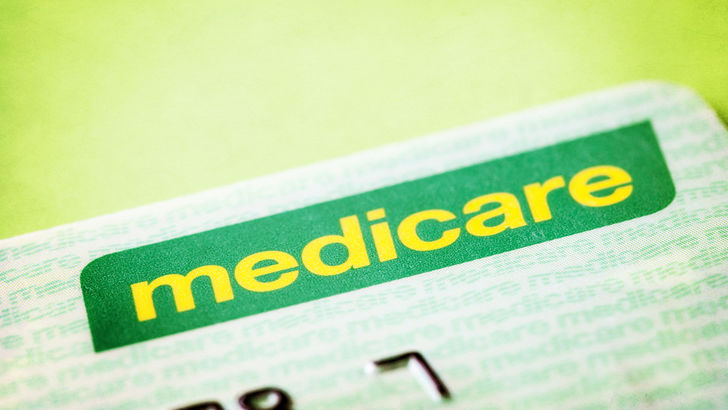Budget winners and losers: what is in it for you?
By Nicola Field
Treasurer Scott Morrison has just handed down the nation's latest Federal Budget. We look at how it could affect your hip pocket.
Low to middle income earners - a tax cut worth $500 annually
It's a no-brainer that a federal election is on the horizon when tax cuts appear in the budget. But no one's complaining.
With the exception of a few minor tweaks around the edges, personal tax rates haven't changed since 2008, and an easing in tax will help to compensate for sluggish wage growth.
From July the low income tax offset will be raised, and the current tax threshold of $87,000 at which the 32.5% marginal tax rate applies will be shifted up to $90,000. The bottom line: low to middle income earners will pocket up to an extra $530 annually.
But don't expect to see the boost to your pay packet immediately.
The tax saving will flow through as part of your tax return and will come as an increase to your tax refund or a reduction in your tax bill. Still, for middle income households where both adults work, it adds up to just over $1000 every year. The catch? Only workers who earn enough money to actually pay tax will enjoy the benefit. If you earn less than $37,000, the maximum saving will be $200.
The good news keeps coming with more tax cuts kicking in over the next seven years.
From 2024 the 37% rate will be farewelled and replaced by a marginal rate of 32.5% applying to all incomes up to $200,000. The top marginal tax rate will remain at 45% but the income threshold at which it applies will rise from $180,001 to $200,001.
Medicare levy to remain unchanged - an extra $350 in your wallet annually
The Medicare levy was scheduled to rise from 2% to 2.5% from July 1, 2019, but the proposed hike has been formally laid to rest.
If you're on the average income of $75,000, that's $350 that remains in your back pocket each year.

Shift your super - save $68
From July 1, 2019 a ban will apply to exit fees charged by super funds when you shift your nest egg to a different fund.
These exit fees collectively cost Australians $52 million in 2016-17 alone, so it's set to give our national retirement savings a valuable boost.
With an average exit fee of $68 applying to low cost MySuper-type funds, it's not a king's ransom at an individual level, but every bit helps and it's a good incentive to start gathering your super savings into a single account.
Younger workers score on super savings
Super funds will be banned from automatically signing members under the age of 25 to life insurance policies.
The same ban also applies to super accounts with balance below $6000 and accounts that have been inactive for 13 months. It's especially good news for young people who often receive employer contributions through part-time or casual work, only to watch their super being gobbled up by insurance premiums.
Fresh chance to be reunited with lost super
If you're among the four million Australians who've put off chasing down lost super because of the time and paperwork involved, the budget brings good news.
The tax office will have expanded powers to proactively reunite inactive super accounts below $6000 with a member's active account.
Regional students - more money for study
Country kids will benefit from more generous limits to the parental income threshold for Youth Allowance.
From January 1, the upper limit of parental income will rise by $10,000 to $160,000 for regional families, with an extra $10,000 added to the upper threshold for each additional child.
Seniors - earn extra $50 a fortnight without losing pension
Older Australians will be able to work more without fears of a cut to their pension payments.
The budget brings a rise in the pension work bonus, which will increase from $250 to $300 a fortnight, allowing pensioners to earn up to $7800 a year before their pension payments are affected. For seniors who want to keep a hand in the workforce, it can bring in an extra $1300 annually to the kitty.
For the first time the bonus will be extended to self-employed seniors, who can now also earn up to $7800 per year.
The government is also tackling age discrimination in the workforce with a wage subsidy of up to $10,000 for employers who hire older workers.
This is good news for over-50s struggling to get a job.

Pensions loan scheme boost
Age pensioners hoping to use home equity to boost their income will be able to access a more generous pension loan scheme that allows seniors to borrow against their home.
Pensioners will now be able to take out a tax-free loan worth up to 150% of their pension payments. Under the current system, the payments are capped at the pension value. The scheme is only available to pensioners who don't receive the full value of the age pension.
Extra funding for the elderly
If you're struggling to meet the cost of caring for an elderly relative, the budget brings additional spending on in-home care.
An extra $1.6 billion will be spent creating 14,000 home care places, helping older Australians avoid the cost of residential care. Subsidised help will be available for activities like showering, dressing, meal preparation and transport. According to the treasurer, more than 74,000 high-level home care places will be available by 2021-22.
More medicines now on PBS
A number of drugs will be added to the Pharmaceutical Benefits Scheme (PBS), including the breast cancer drug ribociclib (marketed as Kisqali), which can cost over $70,000 a year without the subsidy.
Small business - another year of the $20,000 instant write-off
You can almost hear the cries of "boo yah!" from small business owners, who can take advantage of the $20,000 instant asset write-off for yet another year. The rules haven't changed - be sure to check with your accountant that your business is eligible for the write-off before you rush out to invest in new equipment.
Get stories like this in our newsletters.



